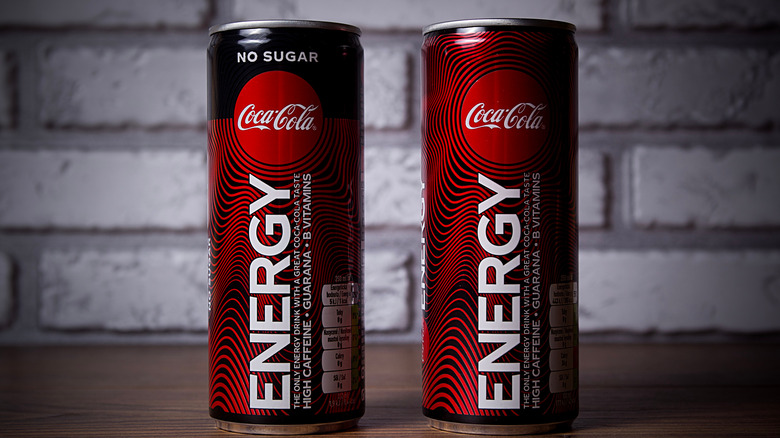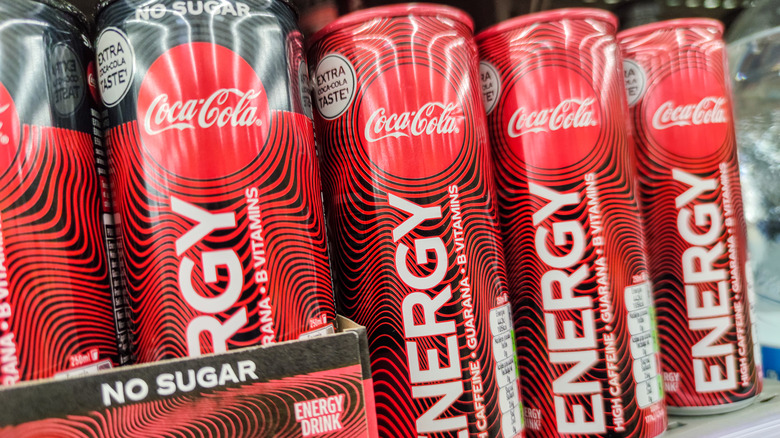Are Coca-Cola Energy Drinks Good For You?
In an effort to expand from the soft drink market into the popular world of energy drink sales, Coca-Cola released its own brand of energy drinks in the U.S. in 2020 titled Coca-Cola Energy (via The Wall Street Journal). While they remain popular in Europe, total sales amounted to less than 1% of all energy drink sales in the U.S. by the end of the year. It begs the question, is the lack of Coca-Cola Energy purchases due to consumer concerns over its ingredients?
A standard 12-ounce can of Coca-Cola Energy is made up of 4 main ingredients: caffeine, niacin, guarana, and vitamin B6 (via Coca-Cola). The energy drink has 4 different product options, including Coca-Cola Energy, Coca-Cola Energy Zero Sugar, Coca-Cola Energy Cherry, and Coca-Cola Energy Zero Sugar Cherry. It's through these familiar flavors that Coca-Cola attempts to preserve, as they say, "The energy you want. The taste you love."
While Coca-Cola energy drinks succeed at simultaneously providing a much-needed boost while tapping into the childhood nostalgia of drinking a soft drink, is this new product actually good for us?
Caffeine and unnatural sweeteners in Coca-Cola Energy
According to clean energy drink manufacturer Kill Cliff, the unnatural sweeteners used in Coca-Cola energy drinks may pose some potential health risks. For example, Coca-Cola Energy Cherry contains fructose, which research has linked to type 2 diabetes, fatty liver disease, and insulin resistance. Additionally, the artificial sweeteners found in sugar-free Coca-Cola Energy products include sucralose and acesulfame potassium, which have been linked to health conditions, such as thyroid dysfunction and cancer.
According to Coca-Cola's website, a 12-ounce Coca-Cola energy drink contains 114 milligrams of caffeine. While this amount is much lower than many other energy drinks, drinking multiple cans can cause negative side effects. The U.S. Food and Drug Administration's daily recommended intake for caffeine consumption is no more than 400 milligrams per day. Consume too much, and you may experience anxiety, agitation, headaches, nausea, and an accelerated heart rate (via WebMD). Although low when compared to other brands of energy drinks, the amount of caffeine in Coca-Cola Energy is still 3 times that of the caffeine content in a standard Coke (via The Wall Street Journal).
However, the question of whether Coca-Cola Energy is good for us may soon become obsolete, as the company has decided that the lack of sales does not justify the continued manufacturing of the product in North America. According to The Wall Street Journal, Coca-Cola Energy will be pulled from both United States and Canada markets by the end of 2021.


